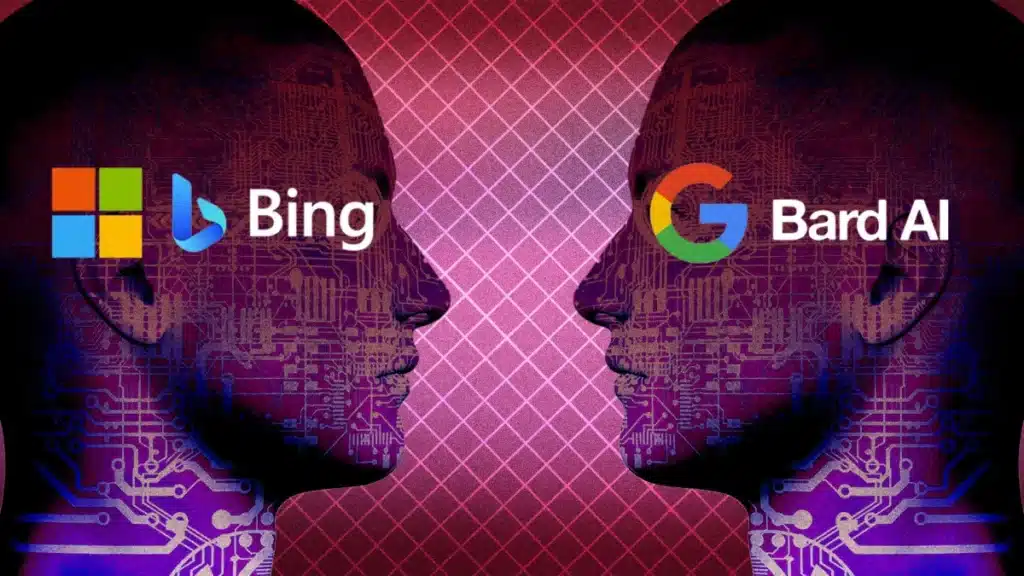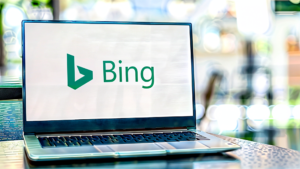In the world of technology, two giants are facing off. Microsoft and Google have both created powerful AI systems. Microsoft has Bing AI, and Google has Google AI. This battle is one of the most exciting in tech today. Let’s dive into what makes each AI special and how they compare.
Thank you for reading this post, don't forget to subscribe!What is Bing AI?
Bing AI is a product of Microsoft. It started as a search engine. Over time, it has become much more. Bing AI now uses advanced machine learning. This means it can understand and process human language better. It helps users find information quickly and accurately.
Key Features of Bing AI:
- Natural Language Processing (NLP): Bing AI understands and responds to human language. It can process questions and give useful answers.
- Image Search: Bing AI can search using images. Users can upload a picture, and Bing AI will find similar images online.
- Voice Search: Bing AI supports voice commands. Users can ask questions out loud, and Bing AI will respond.
- Integration with Microsoft Products: Bing AI works well with other Microsoft tools. This includes Office 365 and Windows.
What is Google AI?
Google AI is the brainchild of Google. It is known for its accuracy and speed. Google AI powers Google Search, Google Assistant, and many other tools. Google has been working on AI for many years. Their AI is advanced and widely used.
Key Features of Google AI:
- Natural Language Understanding (NLU): Google AI can understand complex language. It handles long and detailed questions well.
- Image Recognition: Google AI is excellent at identifying objects in images. It can recognize faces, animals, landmarks, and more.
- Voice Search and Commands: Google AI supports voice interactions. Users can ask it to play music, set reminders, or answer questions.
- Integration with Google Services: Google AI is integrated with services like Gmail, Google Maps, and Google Photos. It makes these tools smarter and more efficient.
Comparing Bing AI and Google AI:
Both Bing AI and Google AI have their strengths. Here’s a detailed comparison:
1. Search Accuracy:
Google AI is often praised for its search accuracy. It uses advanced algorithms to deliver precise results. Bing AI is also accurate, but some users find Google’s results more relevant. This might be due to Google’s longer experience in refining search technology.
2. Speed:
Both AIs are fast, but Google AI has a slight edge in speed. It processes large amounts of data quickly. This makes it very efficient for users who need information in real time.
3. User Interface:
Bing AI has a clean and straightforward interface. It is user-friendly and easy to navigate. Google AI’s interface is also simple but offers more customization. Users can personalize their search settings more extensively.
4. Voice Search:
Voice search is a strong feature for both AIs. Google AI, however, has a broader range of voice commands and supports more languages. Bing AI is improving in this area but still lags slightly behind Google.
5. Integration:
Google AI integrates seamlessly with Google’s ecosystem. This includes Android devices, Google Home, and more. Bing AI is best integrated with Microsoft products like Windows and Office. Users who are deep into either ecosystem will benefit more from using the corresponding AI.
6. Privacy and Data Use:
Privacy is a big concern for many users. Google AI collects a lot of data to improve its services. This can be a concern for those worried about privacy. Bing AI, under Microsoft, has also been collecting data, but Microsoft emphasizes more on privacy controls and transparency. Users should review both companies’ privacy policies to understand how their data is used.
Real-World Applications:
1. Education:
Both AIs are used in education. Google AI powers Google Classroom and helps students and teachers with resources. Bing AI is used in Microsoft’s educational tools like OneNote and Teams. These tools help students with research and organization.
2. Healthcare:
Google AI is involved in healthcare projects like predicting patient outcomes and diagnosing diseases. It uses machine learning to analyze medical data. Bing AI is also used in healthcare, primarily through partnerships with AI healthcare providers to manage data and improve patient care.
3. Business:
In the business world, both AIs offer valuable tools. Google AI provides insights through Google Analytics and helps businesses with customer service via Google Assistant. Bing AI, integrated with Microsoft Office, helps with data analysis and improving productivity.
4. Personal Use:
For personal use, both AIs offer many features. Google AI, with its integration into Android and smart home devices, provides a lot of conveniences. Bing AI, with its connection to Windows and Xbox, offers unique features for personal computing and gaming.
Future Developments:
Both Microsoft and Google are investing heavily in AI. They are constantly improving their AI systems. Future developments could include:
- Enhanced Personalization: Both AIs may become better at understanding individual user preferences and delivering tailored experiences.
- Advanced Machine Learning: New algorithms could make both AIs even smarter and more capable.
- Greater Integration: Both companies may integrate their AIs more deeply into their ecosystems, making them indispensable tools for users.
Final Think:
The battle between Bing AI and Google AI is fascinating. Both have their strengths and unique features. Choosing between them depends on user needs and preferences. Google AI might be better for those deeply integrated into Google’s ecosystem. Bing AI might be the choice for those who rely on Microsoft products. As both AIs continue to evolve, this competition will drive innovation and provide better tools for users worldwide.











